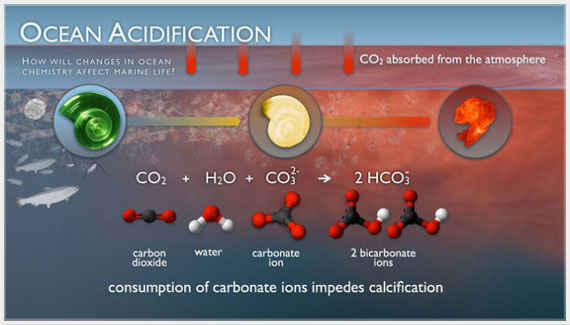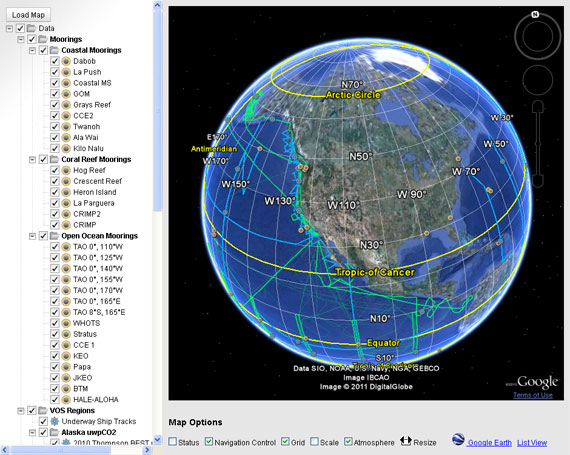
The NOAA Pacific Marine Environmental Laboratory’s Ocean Carbon Group in Seattle has developed a new website, the PMEL Carbon Program to help understand the changing chemistry of the oceans and the impacts of ocean acidification on marine ecosystems. 
Fundamental changes in seawater chemistry are occurring throughout the world's oceans. Since the beginning of the industrial revolution, the release of carbon dioxide (CO2) from humankind's industrial and agricultural activities has increased the amount of CO2 in the atmosphere. The ocean absorbs about a quarter of the CO2 we release into the atmosphere every year, so as atmospheric CO2 levels increase, so do the levels in the ocean.
Initially, many scientists focused on the benefits of the ocean removing this greenhouse gas from the atmosphere. However, decades of ocean observations now show that there is also a downside — the CO2 absorbed by the ocean is changing the chemistry of the seawater, a process called “Ocean Acidification.”

Oceanographers in their group have been studying how CO2 emissions affect the ocean system for more than three decades and continue to monitor ocean acidification in all the world’s oceans from coral reef ecosystems to deep North Pacific waters. The website provides valuable information on the ocean carbon cycle and ocean acidification processes, including model simulations of future projections. It also provides ocean carbon data via an easy-to-use Google web-based data portal. The website is easy to navigate and contains many links to ocean acidification data and information sources.

Posted by John Cook on Saturday, 12 February, 2011
 |
The Skeptical Science website by Skeptical Science is licensed under a Creative Commons Attribution 3.0 Unported License. |